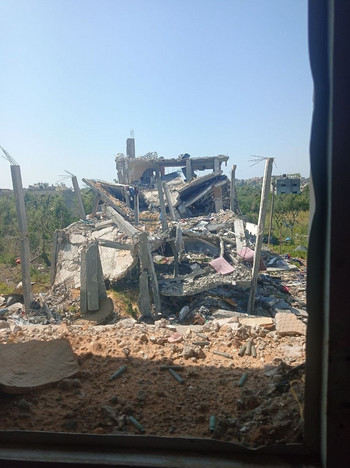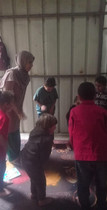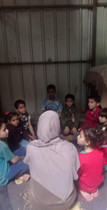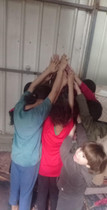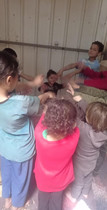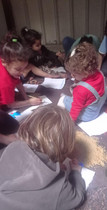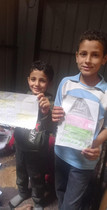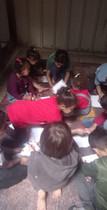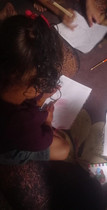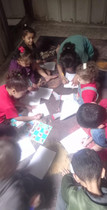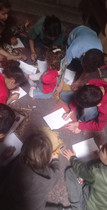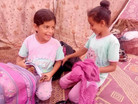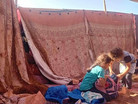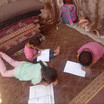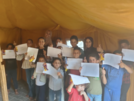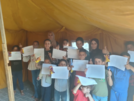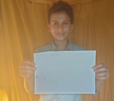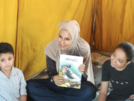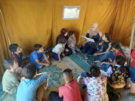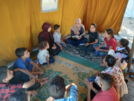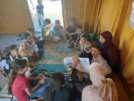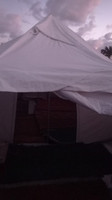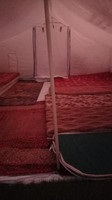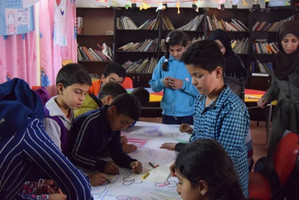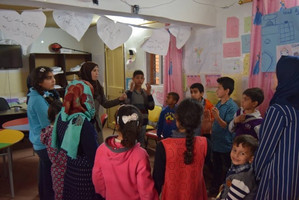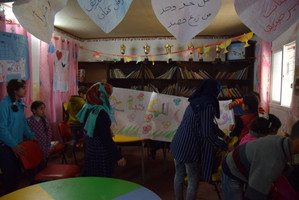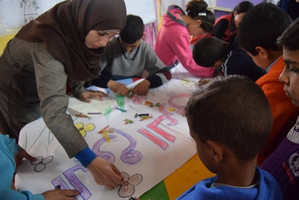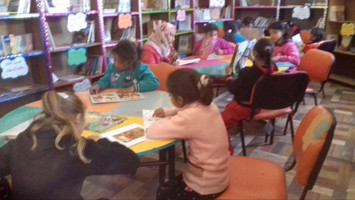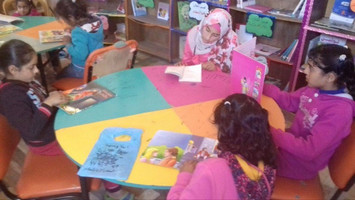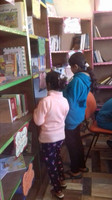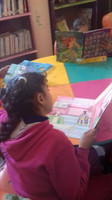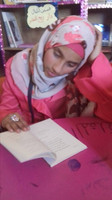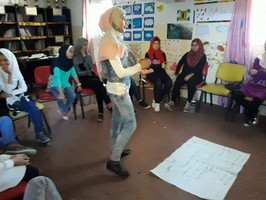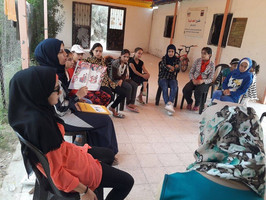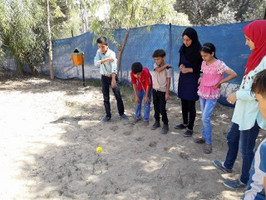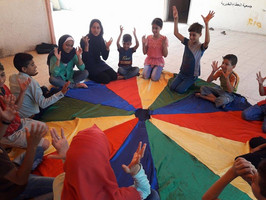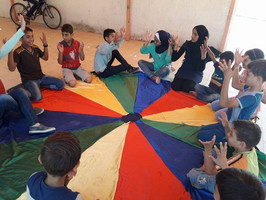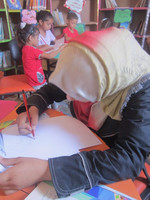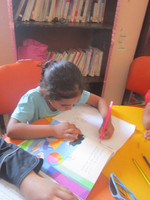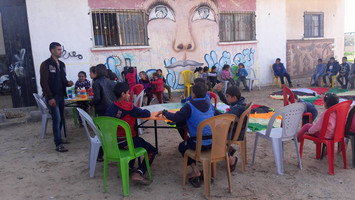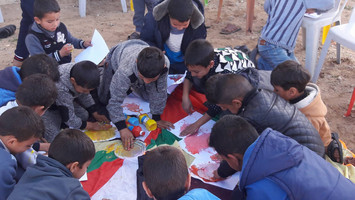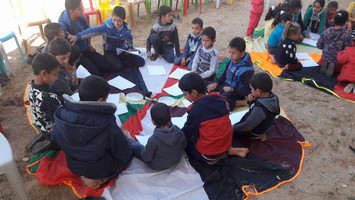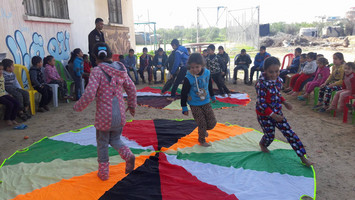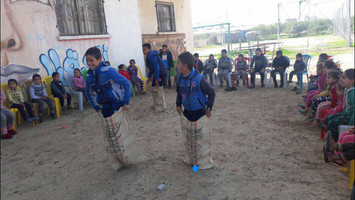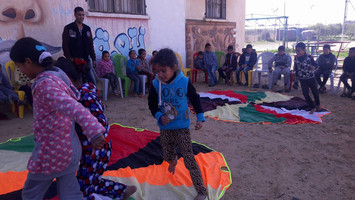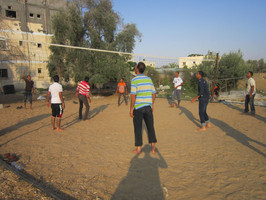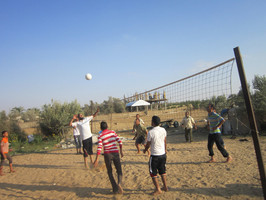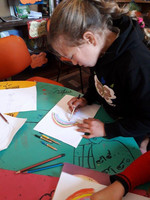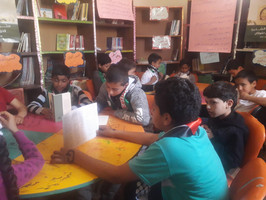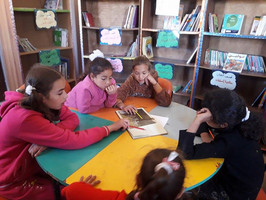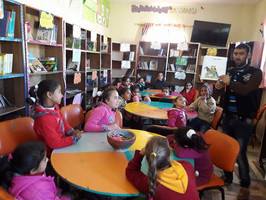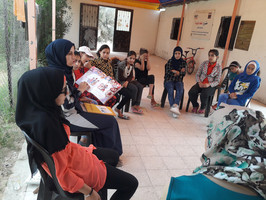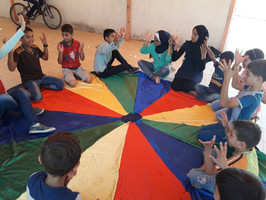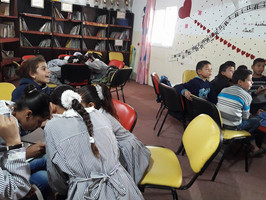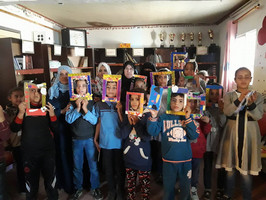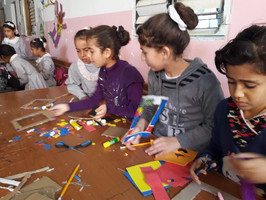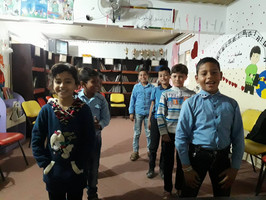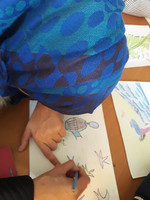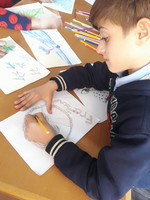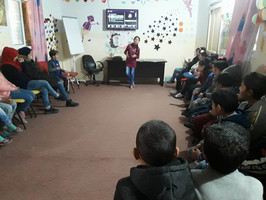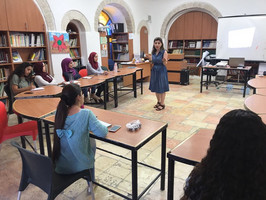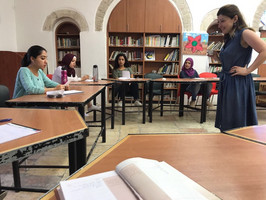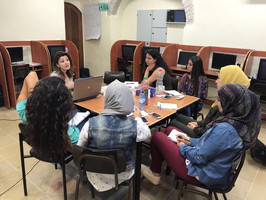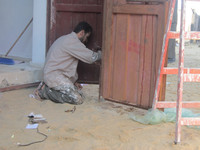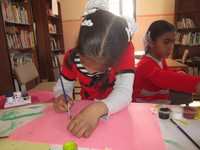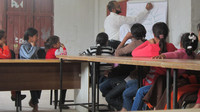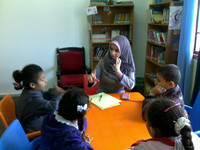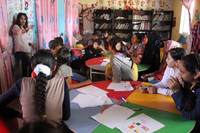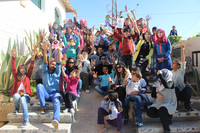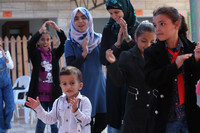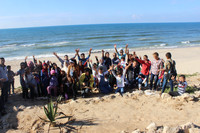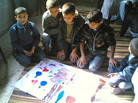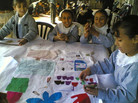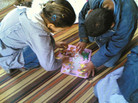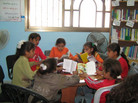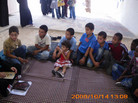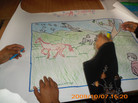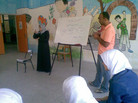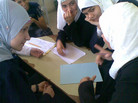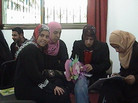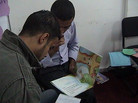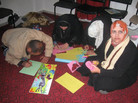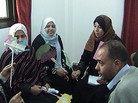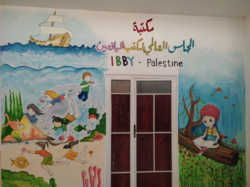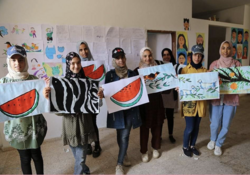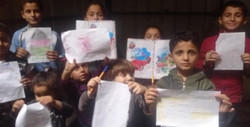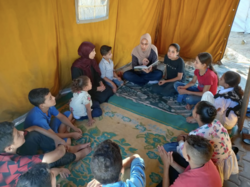IBBY Children in Crisis: Gaza Libraries
Latest news
03.01.2026
IBBY Palestine shares report on use of Libraries are Havens Funds to distribute humanitarian aid
24.09.2025
IBBY Palestine shares heartbreaking report of the IBBY library children killed in Gaza
25.05.2025
IBBY Palestine Urgent Appeal to the Conscience of Humanity: Stand with Gaza
29.04.2025
IBBY partners with Story Sunbirds to provide urgent humanitarian aid to IBBY librarians in Gaza
Background
Since 2007, IBBY has supported children in Gaza through the IBBY Children in Crisis Fund, with IBBY Palestine, at the time based in the Tamer Institute for Community Education, creating libraries in two community centres in Gaza. Now operated by IBBY Palestine hosted by the MA'AN Development Centre in Ramallah, the libraries in Beit Hanoun, named the al-Ataa library, and Rafah, named the al-Shawka library, offered safe spaces for reading, learning, and healing through bibliotherapy and creative activities, especially for children affected by conflict and trauma. In addition, bibliotherapy training was given to the people working in the centres who, in turn, trained other bibliotherapists working throughout Gaza.
Despite repeated closures and damage caused by ongoing violence—including the destruction of the Beit Hanoun library and vandalism of the Rafah library—the project has endured. With support from the Katherine Paterson Family Foundation, the Sharjah/IBBY Fund, and donors worldwide, the libraries were rebuilt, restocked, and expanded over the years, positively impacting children’s literacy, mental health, and sense of community.
During the COVID-19 pandemic, outreach continued with the distribution of books, hygiene kits, and learning materials. Even amid the current war in Gaza, IBBY Palestine remains committed, with librarians like Abla Hama continuing to engage children in makeshift spaces whenever possible.
Tragically, the ongoing Israeli destruction of Gaza since October 2023 has once again devastated the project. The Beit Hanoun library was completely destroyed and the Rafah library was vandalized. During the ceasefire, the local community took the initiative to clean the rubble and began to partially function, with children coming once more to borrow books (IBBY Palestine Facebook Update Here).
With the resumption of Israeli attacks and control of Rafah, the Rafah library is once more unreachable and its current situation is unknown. The dedicated librarians have been displaced multiple times but continue to support children whenever conditions allow.
In 2024, IBBY renewed its pledge to revive the libraries and resume psychosocial support for Gaza’s children. These libraries have been lifelines—places of hope, resilience, and recovery.
Donations of any size help us rebuild and continue this vital work.
October 2023 Until Now: Gaza Libraries Destroyed and Librarians Displaced
The Israeli war raging in Gaza since October 2023 has had fateful consequences on the libraries. In Beit Hanoun the building was turned to rubble, and while the Rafah library still stands on its feet, it was bombed and severely damaged. Abla Hamad, one of the two full-time librarians employed by IBBY Palestine, and her family, have been displaced on more than seven occasions. She has continued her work with children whenever circumstances allow, as covered in a video news report by Al Jazeera+ in September 2024 (in Arabic).
In November 2024, IBBY International pledged to revive and rebuild the libraries in Gaza and commence bibliotherapy and psychosocial activities for the children in makeshift spaces. Donations, large or small, can make a difference, and are deeply appreciated.
IBBY Palestine Facebook Updates: January 2025, March 2025, April 2025, June 2025, July 2025, September 2025, October 2025
Libraries are Havens Campaign
29 April 2025
As the humanitarian conditions have continued to deteriorate, the Story Sunbirds, a Kidlit collective, launched the Libraries are Havens campaign alongside IBBY and IBBY Palestine to provide life-saving aid to displaced librarians, as it is through their incredible labor that books reach the hands of children everywhere. Access the campaign website here.
September 2025: IBBY Palestine Email Updates from Gaza
The ongoing genocide in Gaza has brought devastation on a scale that continues to defy words. The IBBY Palestine community has shared updates through email, mourning the loss of children, families, cultural institutions, and entire neighbourhoods, in what is a systematic and multi-layered assault on Palestinian life and heritage.
The two IBBY libraries in Gaza, symbols of peace, hope, and literacy, have been destroyed. These spaces once served hundreds of children, nurturing their creativity, imagination, and love for books. Below, you will find images of the destroyed Beit Hanoun library, as of July 2025, sent by IBBY Palestine.
Today, many of the children who were members of these libraries have been killed in the conflict. Their names and photos are being collected by the IBBY Palestine librarians.
The Israeli military’s actions are not only targeting people. It is a destruction of education, culture, homes, hospitals, and history itself. The people of Gaza are experiencing what IBBY Palestine describes as a multi-genocide:
- Educide and scholasticide: the destruction of schools and the killing of educators.
- Culturcide and urbicide: the erasure of cultural institutions and entire city blocks.
- Domicide and politicide: the obliteration of homes and the targeting of civic life.
- Ecocide: the devastation of Gaza’s already fragile environment.
We are also witnessing an unprecedented loss of life among doctors, journalists, artists, professors, and above all, children. These acts aim to erase not only the present but also the future of Palestinian life and identity.
Despite the heartbreak, we continue to act. Thanks to the generous support from the communities of the Story Sunbirds, the IBBY Sections, and the advocacy of people all around the world, the Story Sunbirds, IBBY, and IBBY Palestine has been able to provide:
- Salaries for librarians and the local coordinator
- Humanitarian aid to artists, writers, and cultural workers involved in our library programs
- Emergency support for IBBY Palestine library families displaced from Gaza City
- Direct aid to families of the library children, many of whom do not have access to bank accounts
To distribute this support, families are registering for PayPal accounts, and IBBY Palestine has successfully transferred aid to 18 families so far.
The value of money continues to erode due to inflation and currency fluctuations—$100 now has the purchasing power of approximately $60–$70. Basic goods like food and clean water remain scarce and unaffordable for most. Yet, with your help, we continue to reach those most in need.
We remain committed to reviving our libraries and honouring the children who once filled them with laughter, curiosity, and joy.
IBBY Palestine Reporting and Librarian Testimonials
History
Discover more on the IBBY Palestine Website.





